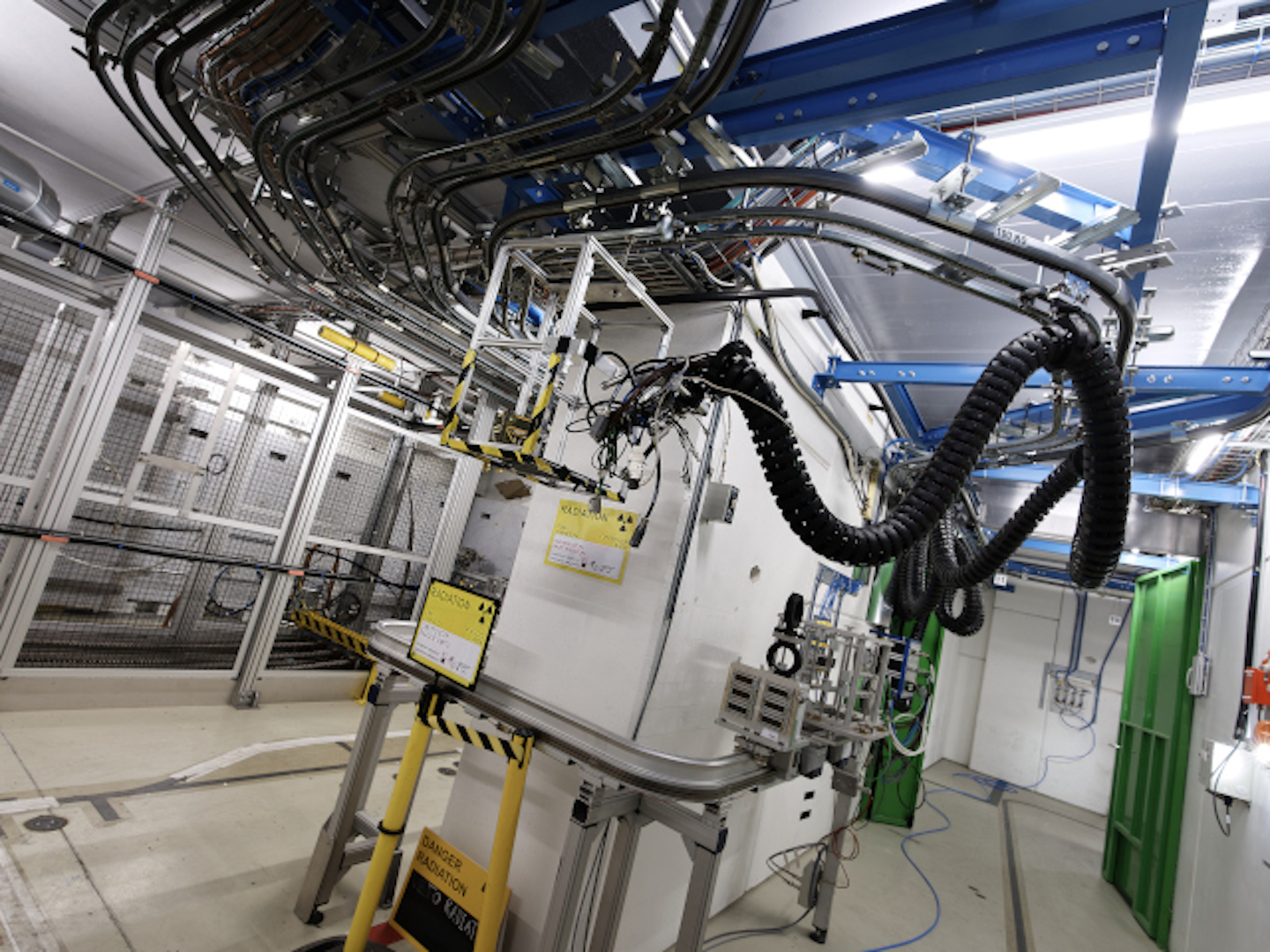HEARTS will equip the CHARM heavy ion facility, located at CERN, to meet the needs of the space community for the radiation effects testing of electronics components and systems. (Image: CERN)
The HEARTS project will provide two new radiation-testing facilities for space applications, one at CERN and one at GSI in Germany. The project started in January and will allow the testing of high-end microelectronics technology for novel space applications and for shielding and radiobiology experiments that will foster human space exploration.
Artificial intelligence, quantum technologies, advanced computing, deep space missions... Projects for new advanced space applications are many and varied. To carry them out, it is essential to use highly advanced radiation-resistant electronic devices and to acquire decisive knowledge of shielding properties and radiobiology for astronauts going to the Moon and beyond. Capable of mimicking the effects of highly penetrating radiation in space, very high-energy (VHE) ion beams are now commonly used to qualify advanced electronics for use in space, shielding and radiobiology testing. However, no such facilities tailored specifically for space applications exist anywhere in Europe.
Funded under the Horizon Europe programme, HEARTS (High-Energy Accelerators for Radiation Testing and Shielding) aims to develop and establish a European infrastructure for research and industrial access to high-energy heavy ion facilities to study radiation effects in electronics, shielding and radiobiology. For this purpose, it will upgrade two VHE ion facilities at CERN and GSI and provide access to space industries and academia on a routine basis.
HEARTS will be instrumental to ensuring Europe’s autonomous access to space. With VHE ion facilities available in Europe, European companies will be less dependent on facilities elsewhere. By the end of the project in 2026, HEARTS will enable Europe to fulfil the current demand for VHE ions with ease and to meet the increasing demand foreseen by the end of the decade.
The project is coordinated by CERN, in partnership with GSI as the main high-energy ion accelerator infrastructures. The University of Padua is an academic partner, and Thales Alenia Space and Airbus Defence and Space are industrial partners. All have extensive experience in the field of radiation effects and a strong interest in VHE ion testing.
HEARTS is a project funded by the European Union under Grant Agreement No 101082402, through the Space Work Programme of the European Commission.
Follow the project on LinkedIn.
